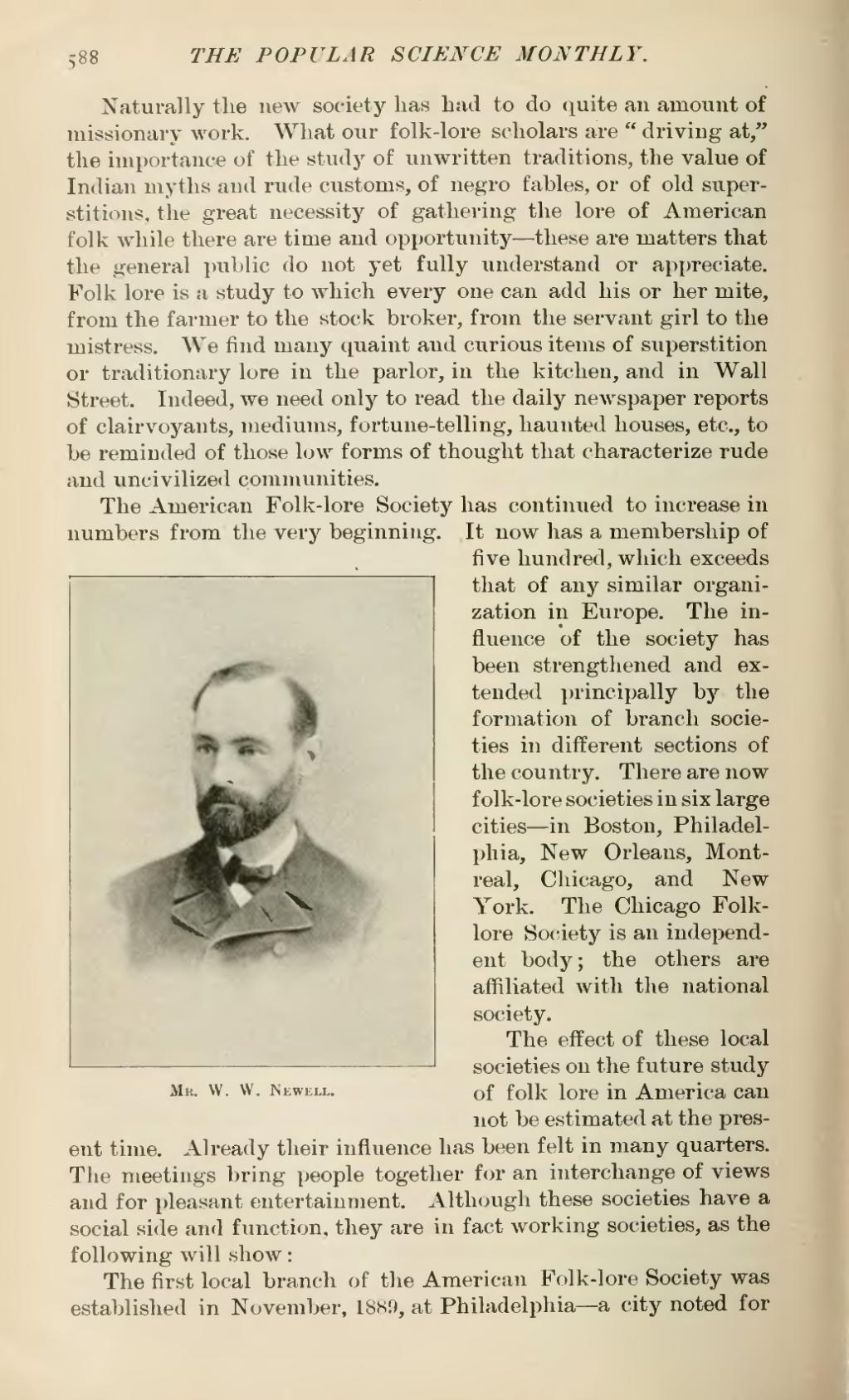Naturally the new society has had to do quite an amount of missionary work. What our folk-lore scholars are "driving at" the importance of the study of unwritten traditions, the value of Indian myths and rude customs, of negro fables, or of old superstitions, the great necessity of gathering the lore of American folk while there are time and opportunity—these are matters that the general public do not yet fully understand or appreciate. Folk lore is a study to which every one can add his or her mite, from the farmer to the stock broker, from the servant girl to the mistress. We find many quaint and curious items of superstition or traditionary lore in the parlor, in the kitchen, and in Wall Street. Indeed, we need only to read the daily newspaper reports of clairvoyants, mediums, fortune-telling, haunted houses, etc., to be reminded of those low forms of thought that characterize rude and uncivilized communities.
The American Folk-lore Society has continued to increase in numbers from the very beginning. It now has a membership of  Mr. W. W. Newell. five hundred, which exceeds that of any similar organization in Europe. The influence of the society has been strengthened and extended principally by the formation of branch societies in different sections of the country. There are now folk-lore societies in six large cities—in Boston, Philadelphia, New Orleans, Montreal, Chicago, and New York. The Chicago Folklore Society is an independent body; the others are affiliated with the national society.
Mr. W. W. Newell. five hundred, which exceeds that of any similar organization in Europe. The influence of the society has been strengthened and extended principally by the formation of branch societies in different sections of the country. There are now folk-lore societies in six large cities—in Boston, Philadelphia, New Orleans, Montreal, Chicago, and New York. The Chicago Folklore Society is an independent body; the others are affiliated with the national society.
The effect of these local societies on the future study of folk lore in America can not be estimated at the present time. Already their influence has been felt in many quarters. The meetings bring people together for an interchange of views and for pleasant entertainment. Although these societies have a social side and function, they are in fact working societies, as the following will show:
The first local branch of the American Folk-lore Society was established in November, 1889, at Philadelphia—a city noted for
